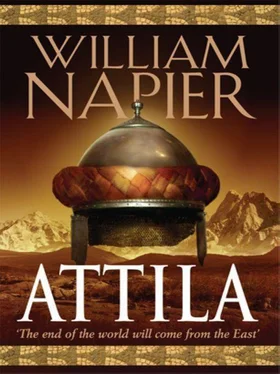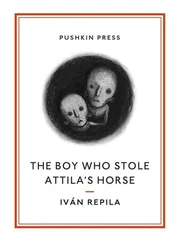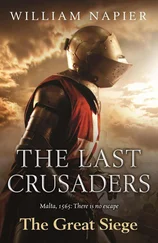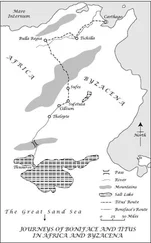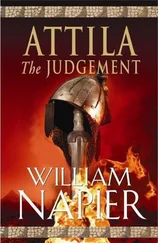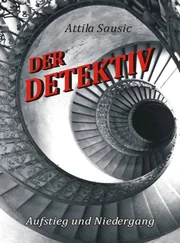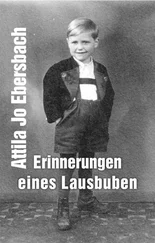William Napier - Attila
Здесь есть возможность читать онлайн «William Napier - Attila» весь текст электронной книги совершенно бесплатно (целиком полную версию без сокращений). В некоторых случаях можно слушать аудио, скачать через торрент в формате fb2 и присутствует краткое содержание. Жанр: Исторические приключения, на английском языке. Описание произведения, (предисловие) а так же отзывы посетителей доступны на портале библиотеки ЛибКат.
- Название:Attila
- Автор:
- Жанр:
- Год:неизвестен
- ISBN:нет данных
- Рейтинг книги:5 / 5. Голосов: 1
-
Избранное:Добавить в избранное
- Отзывы:
-
Ваша оценка:
- 100
- 1
- 2
- 3
- 4
- 5
Attila: краткое содержание, описание и аннотация
Предлагаем к чтению аннотацию, описание, краткое содержание или предисловие (зависит от того, что написал сам автор книги «Attila»). Если вы не нашли необходимую информацию о книге — напишите в комментариях, мы постараемся отыскать её.
Attila — читать онлайн бесплатно полную книгу (весь текст) целиком
Ниже представлен текст книги, разбитый по страницам. Система сохранения места последней прочитанной страницы, позволяет с удобством читать онлайн бесплатно книгу «Attila», без необходимости каждый раз заново искать на чём Вы остановились. Поставьте закладку, и сможете в любой момент перейти на страницу, на которой закончили чтение.
Интервал:
Закладка:
In the ghostly shell of Rome today, the stray, half-starved cats scratch about in the ruins of the Forum, and weeds grow from the cracks in the once golden buildings. Starlings and kites make their nests in the eaves of palaces and villas where generals and emperors once talked.
The sun has set and it is cold in my chamber, and I am very old. My supper is a little white bread and a mouthful or two of thin, watered wine. The Christian monks with whom I live, in this high and lonely monastery, teach that sometimes this bread and this wine are the flesh and blood of God. It is true that wonders are many, and even this may be so. But to me it is only bread and wine; and it will suffice.
I am an historian with a great and terrible story to tell. I am nothing, but it seems I have known everything. I have read every letter, every scrap of chronicle and history that survives from the times I have lived through. I have known and spoken with every principal player upon the stage of history during those tumultuous and world-shaking years. I have been a scribe in the courts of both Ravenna and Constantinopolis, and I have served both General Aetius and Emperor Theodosius II. I have always been a man in whom people have confided, while remaining discreet myself; although when intimate gossip and rumour have come my way I have not closed my ears, but have listened as attentively as I would to the most solemn and objective accounts of mighty deeds and battles, believing with the playwright Terence that ‘Homo sum; humani nil a me alienum puto.’ They are fine words, and stand for my motto, as they might for any writer whose subject is human nature itself. ‘I am human; and nothing human is alien to me.’
I have known the Eternal City on the Seven Hills, I have known the scented court of Ravenna, I have known the golden, heavenly City of Constantine. I have travelled up the mighty Danube river, and through the Iron Gates and down into the heartland of the Huns, and heard from his own lips of the extraordinary early years of their dread king himself; and survived to tell the tale. And I have stood on the wide champaign country of the Catalaunian Fields, and seen where two of the greatest armies of all time came so bloodily together, in a clash of arms and a cloud of fury such as no other age has ever known, and where the fate of the world was decided: a fate so strange that it was unforeseen by any of the combatants. But some wise men knew. The singers and the seers and the Last of the Hidden Kings: they knew.
I have known slaves and soldiers, harlots and thieves, saints and sorcerers, emperors and kings. I have known a woman who ruled the Roman world, first in place of her idiot brother, and then for her idiot son. I have known an emperor’s beautiful daughter, who offered herself in marriage to a barbarian king. I have known the last and noblest Roman of them all, who saved an empire which was already lost, and died for his pains at the point of an emperor’s dagger. And I have known the small, fierce friend he played with in his careless boyhood, on the wide and windy plains of Scythia – the boyhood friend who in adulthood became his deadliest enemy; who rode at the head of half a million horsemen, darkening the sky with their storms of arrows, and destroying all in their path like a forest fire. At the last the two boyhood friends faced each other as old and tired men, across the battle lines upon the Catalaunian Fields. And though neither could see it, it was a battle they both must lose. Our noblest Roman lost all that he loved, but so too did his barbarian enemy: Romulus’ dark brother, the shadow of Aeneas, whom men called Attila, King of the Huns, but who also rejoiced in the name his terrified victims gave him: the Scourge of God.
Yet, out of that fury of battle and destruction at the end of the world, a new world was born; is still being slowly and miraculously born, out of the ashes, like hope itself. For as a wise man used to say to me, with his old and care-worn smile, ‘Hopes may be false; but nothing deceives like Despair.’
And all these things are God. So says the wisest of all poets, grave Sophocles. Unfathomably he describes to us all things both light and dark: nobility and courage, love and sacrifice, cruelty, cowardice, atrocity and terror. Then he calmly tells us:
And all these things are God…
PART I
The Wolf in the Palace
1
Tuscany, early August 408
A bright dawn was breaking over the sun-baked plains beside the River Arno. Around the walls of the grim frontier town of Florentia, the exhausted remnants of Rhadagastus’ barbarian army were awakening, to find themselves no longer surrounded by the implacable legionaries of Rome. Slowly, uncertainly, and with a defeated air, they began to break camp and make for the hills to the north.
On another hill to the south, commanding a fine view of the retreat, and surveying the scene with some satisfaction, sat two Roman officers on horseback, resplendent in breastplates of bronze and plumes of scarlet.
‘Shall I give the order, sir?’ said the younger of the two.
General Stilicho kept his gaze on the unfolding scene below. ‘Thank you, Tribune, but I shall do it myself when good and ready.’ Impertinent puppy, he thought, with your bought commission and your unscarred limbs.
From far below arose clouds of dust, partially obscuring the sight of the barbarians’ great wooden wagons as they creaked and rolled out of the camp and made their way northwards. The two Roman officers on the hill could hear the crack of bullwhips and the cries of men as this motley and vagabond army of Vandals and Sueves, renegade Goths, Lombards and Franks, began its long retreat back beyond the Alpine passes to their tribal homelands.
Rome would survive their attentions a little longer yet.
Rhadagastus’ ferocious horde of Germanic warriors had been united only in their lust for gold, and their fierce delight in destruction. They had cut a crimson swathe across half of Europe, from their homelands on the cold Baltic shores, or out on the vast Scythian steppes, to the vineyards of Provence and the golden hills of Tuscany, until they eventually came to a halt at the city of Florentia. Once there, they besieged that sternly fortified colony of Rome on the banks of the Arno. But the great General Stilicho, as imperturbable as ever, rode north from Rome to meet them, with an army perhaps only a fifth the size of Rhadagastus’ – but an army trained in the arts of siegecraft as well as war.
As is so often said, for every day that a Roman soldier wields a sword, he spends a hundred days wielding a shovel. No one digs a trench like a Roman soldier. And soon the besiegers of the city found themselves in turn besieged. The surrounding army, though fewer in number, had access to vital supplies from the nearby country, to food and water, fresh horses and even new weaponry. The surrounded army, however, forcibly enclosed in its camp under the heat of the Tuscan August sun, was in no better circumstances than Florentia itself. The trapped barbarians had no resources they could draw on, and slowly began to expire.
In desperation, the frustrated and stricken Germans threw themselves against the barriers that surrounded them, but to no avail. Their horses shied and whinnied, hooves cruelly pierced by the iron caltrops the Romans had scattered across the hard-baked ground, throwing their furious riders beneath the unyielding entrenchments and ramparts, where they were soon despatched by archers up on the embankment. Those who tried to attack their besiegers on foot found themselves having to descend into a ditch six feet in depth, and then struggle out the far side, an equal climb, and up against three lines of wicked sharpened staves. Behind them were lined the Roman spearmen with their long thrusting-javelins. It was an impossible barrier. Those barbarians not slain on the barricades returned to their tents and lay down in exhaustion and despair.
Читать дальшеИнтервал:
Закладка:
Похожие книги на «Attila»
Представляем Вашему вниманию похожие книги на «Attila» списком для выбора. Мы отобрали схожую по названию и смыслу литературу в надежде предоставить читателям больше вариантов отыскать новые, интересные, ещё непрочитанные произведения.
Обсуждение, отзывы о книге «Attila» и просто собственные мнения читателей. Оставьте ваши комментарии, напишите, что Вы думаете о произведении, его смысле или главных героях. Укажите что конкретно понравилось, а что нет, и почему Вы так считаете.
